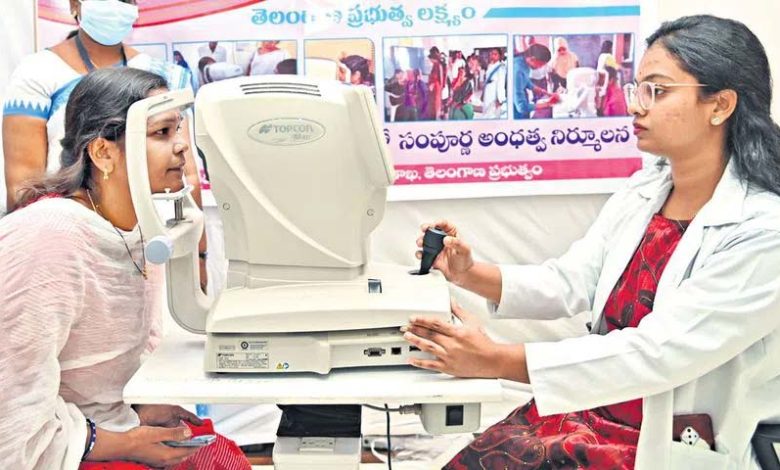Telangana: Increase in eye related diseases

Hyderabad: A concerted effort to identify visually impaired people has become the need of the hour, as several research papers have not only pointed to the rising burden of ocular diseases among the general population but also linked vision loss to cognitive decline among elderly people. While the previous BRS government had made special financial allocations for mass eye screening camps in the form of Kanti Velugu, the Congress government is yet to formulate a public health policy to respond to the high prevalence of visually impaired people and identify vulnerable people requiring surgical intervention. Currently, the only active initiative to identify visually impaired people in the state is the Central government-sponsored National Programme for Control of Blindness (NPCB).
While the previous two initiatives of Kanti Velugu were spearheaded by officials of the NPCB and Telangana Directorate of Public Health (DPH), this time, no special financial allocation has been made in the state budget for such initiatives. Senior officials of the health department said, “The state government has to take initiatives like mass eye screening programmes, but so far we have not received any such instructions or financial allocations.” A recent study conducted by the city-based L V Prasad Eye Institute (LVPEI) on rural population aged 40 years and above in Adilabad and Mahabubnagar indicated that the age-adjusted and sex-adjusted prevalence of visual impairment was 15 per cent among 6,150 individuals.
Published in the British Medical Journal (BMJ), the study said women were more likely to have vision loss, and cataract (55%) was the leading cause of visual impairment, followed by uncorrected refractive errors for visual impairment (VI). A similar population-based study, this time conducted by LVPEI in Telangana on school-going children (4 to 15 years), indicated a high prevalence of VI. According to the study, the prevalence of VIS in children was 1.16 per cent among the 7,74,184 children screened. Another recent study conducted by LVPEI on the elderly showed that elderly with vision loss are four times more likely to have cognitive impairment than those without vision loss. The study said that less than 30 per cent elderly with mild vision loss have cognitive impairment, but it steadily increases as vision loss worsens.





